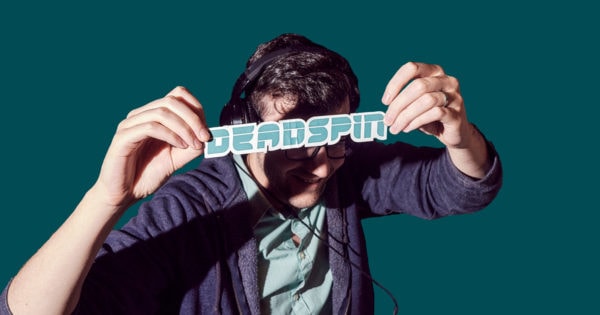
Folks have been piling on G/O Media for its “stick to sports” mandate to Deadspin, the creative sports publication with a cult following. That mandate saw its editorial staff leave in a revolt. Days later, an executive resigned.
Deadspin has been a ghost town for a month now, since Nov. 4, when it last posted a story. It’s unlikely the website will ever regain the 30 million monthly views it had once garnered.
This stick to sports controversy is a lesson in the power of content and community in today’s marketing world. Those in leadership for new parent company G/O Media failed to understand that Deadspin’s freewheeling journalists, like Laura Wagner and Drew Magary, together with its audience were the brand. Deadspin accomplished what should be considered a Holy Grail: a tight-knit, lively relationship with a devoted audience. This example should have been inspiring to marketers and salespeople, who increasingly have the data and tools to drive 1:1 relationships that grow the business. Instead, the brand is effectively comatose.
Every CMO, brand manager or digital marketer can learn a few things from Deadspin’s demise. One major upshot is that content and community cannot be taken for granted. Another takeaway is to know who your biggest influencers are and not to underestimate what they mean to your brand.
Let’s look at what could have been, had Deadspin’s new owners recognized what made their brand special: the power of community.
Ethos can expand your business
The stick to sports mandate suggests brands should stay in their lane to succeed and inspire customer loyalty. In fact, sometimes the opposite is true.
We’ve learned that from REI closing its stores on Black Friday and encouraging customers #OptOutside instead of shopping. And we’ve learned that from up-and-coming retailer Outdoor Voices, which has become a $100 million company by building a community around being active while making its social media all about regular people wearing the fitness apparel brand in five years.
Deadspin was known for a style of creative freedom that attracted young readers until suddenly it didn’t stand for much at all.
Generally, anything that a brand creates—even if the creation isn’t in its original area of business—should develop a deeper connection with its audience. Red Bull didn’t “stick to energy drinks,” and the results have turned the brand into a juggernaut in the extreme sports world. Marriott didn’t “stick to hotels,” and it has become a content marketing machine. American Express didn’t “stick to credit cards,” and it created Small Business Saturday, among other initiatives that fall outside the realm of finance.
In the case of Deadspin, the stick to sports brouhaha seems to have been unnecessary. As Los Angeles Times editor Kim Janssen showed via a dive into the data, non-sports stories were less than 4% of Deadspin’s stories in September.
Commerce is now driven by a brand’s community
Every great brand has a community, and that community has a collective identity. REI, Outdoor Voices, Red Bull, Marriott and Amex obviously get this idea. Deadspin seemed like a community-first brand, but then it became clear that its proprietors didn’t understand what that concept meant.
Today’s customer experience is powered by information that is valuable and relevant to a specific audience. Direct-to-consumer beauty and skincare brand Glossier underscores this idea and shows that communities and content drive sales. The brand’s focus on community is at the heart of why it’s gone from a side gig to a $1.2 billion ecommerce company.
Nine years ago, Emily Weiss, founder and CEO of Glossier, launched her blog Into the Gloss, creating content around beauty topics before heading to her day job each morning. Within a few years, Weiss had millions of avid readers. That community had proven to be so strong that she eventually launched Glossier. With that in mind, it also seems fair to wonder whether Deadspin could have built a thriving ecommerce business around its content over time.
No matter what business you are in, your content and community are as responsible for your brand as your marketing or leadership is. Deadspin’s demise couldn’t have made that any clearer.
https://www.adweek.com/brand-marketing/deadspins-demise-shows-how-vital-community-is-to-a-brand/

